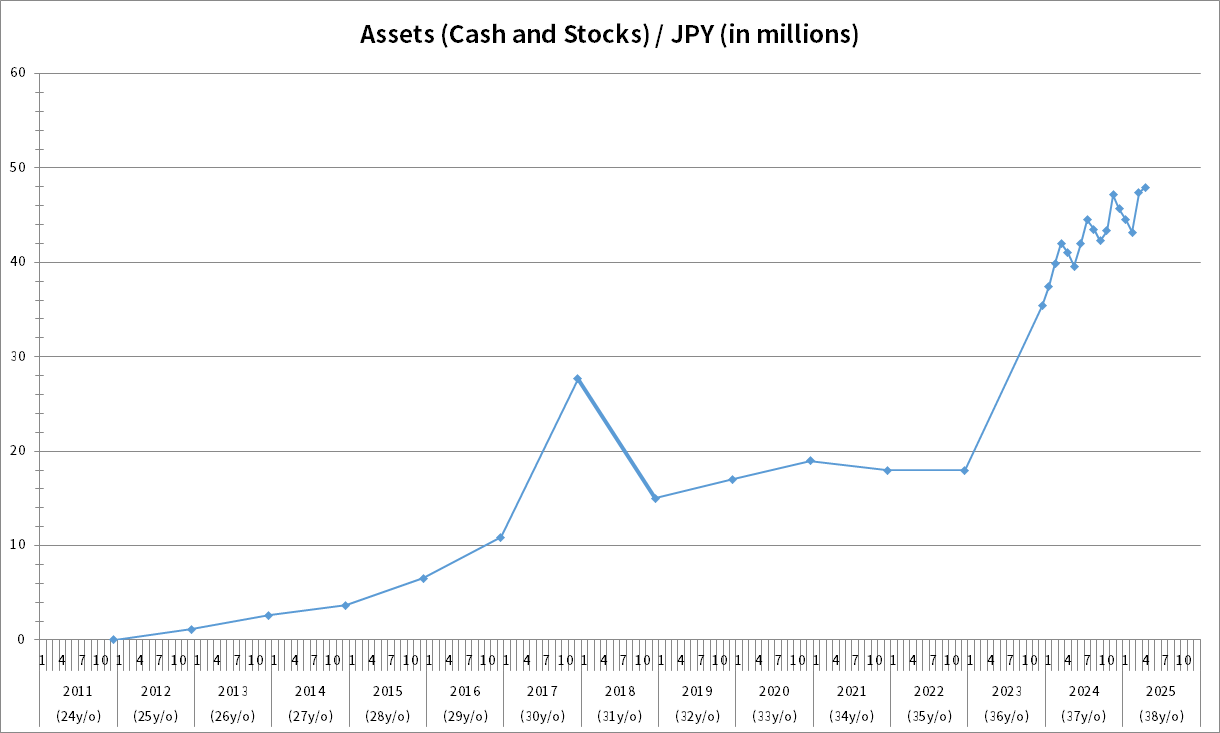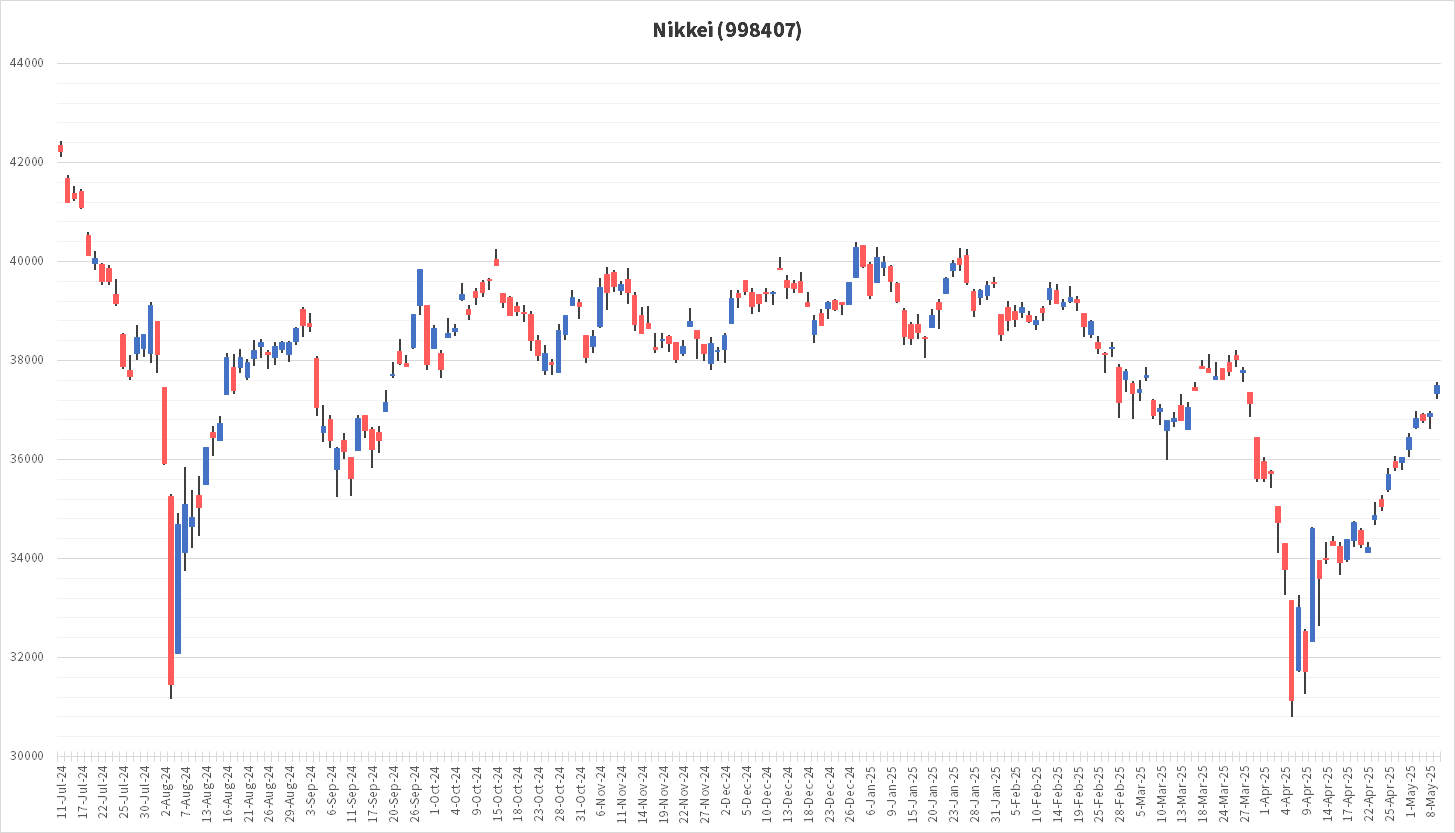![January-April 2025 Results [Asset Trends Disclosure]](https://financial-textbook.com/wp-content/uploads/2025/05/eyecatch_124.webp)
Summary of investment and asset management performance for January-April 2025.
This article calculates the exchange rate at "$0.00690/yen" (145 yen/$).
The sales and other figures used in this article are current as of the time of writing. Depending on your viewing period, the figures may have changed significantly.
Table of Contents(目次)
Latest results as of April 2025
The chart below shows the changes in my assets. The point on the far right represents my assets as of the end of April 2025, which amounted to 47.95 million yen (approximately $0.331 million).
The rate of change in assets from January 1, 2025, to the end of April was 4.97%.

The Nikkei 225 stock average fell sharply due to President Trump's remarks.

In April 2025, the global stock market crashed, not just in Japan. President Trump's announcement regarding tariffs caused this. However, stock prices are now gradually recovering.
If I had been able to purchase additional stocks during the crash, I could have made significant profits when prices recovered. However, since I typically invest nearly 100% of my assets in stocks, I could not make additional purchases and only watch helplessly. Nevertheless, my assets have reached an all-time high by holding onto my stocks and exercising patience.
Finally
It's been a while since my last blog post. What have I been up to? I've been job hunting.
My current workplace is delightful, but my salary hasn't increased much. Japan's employment system is very favorable to workers, and once a company hires someone as a permanent employee, it's difficult to fire them, even if they're lazy. As a result, permanent employees have stable jobs, but their salaries don't increase significantly. That's why I've been job hunting, looking for a company that will pay me a salary commensurate with my skills.
As a result of this job search, my annual salary has increased by 1.5 million yen (approximately $0.01 million). After taxes and other deductions, my take-home pay has increased by approximately 1 million yen. In Japan's job market, salaries are often determined based not only on skills but also on the current salary of the previous position. For example, if your current annual salary is 6 million yen, even if your skills are worth 10 million yen, you might only receive an offer of around 7 to 8 million yen. I think this is a terrible culture, but as workers, we have no choice but to accept it. To avoid spending your entire life in a low-income job, you must repeatedly change jobs in short intervals.
When you hear about a 1.5 million yen annual salary increase, some might think, “Is that all?” However, considering that the average yearly salary for Japanese salaried workers is approximately 4 million yen (roughly $0.28 million), it is a better offer. In any case, to keep increasing your salary, you need to keep switching jobs, which means you might have to stop updating your blog for a few years to focus on job hunting.
I have some moving-related tasks, so updating the blog frequently will take a bit longer. I'm doing well, so please don't worry!
The information on this website is not intended as a solicitation to invest or as investment advice. It is not intended to suggest or guarantee future trends in stock value, nor is it a recommendation to buy or sell. Investment decisions should be made at the user's discretion. While every effort has been made to ensure the accuracy of the information contained in this website, the website administrator assumes no responsibility for any errors in the information, problems caused by downloading data, or any other losses incurred as a result of trading in stocks or other securities.
![2024 Final Results [Asset Trends Disclosure]](https://financial-textbook.com/wp-content/uploads/2025/01/2024_results-150x150.png)